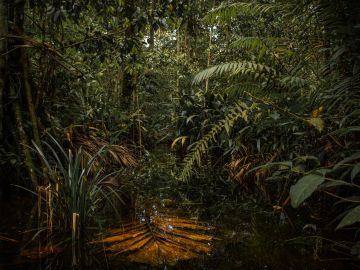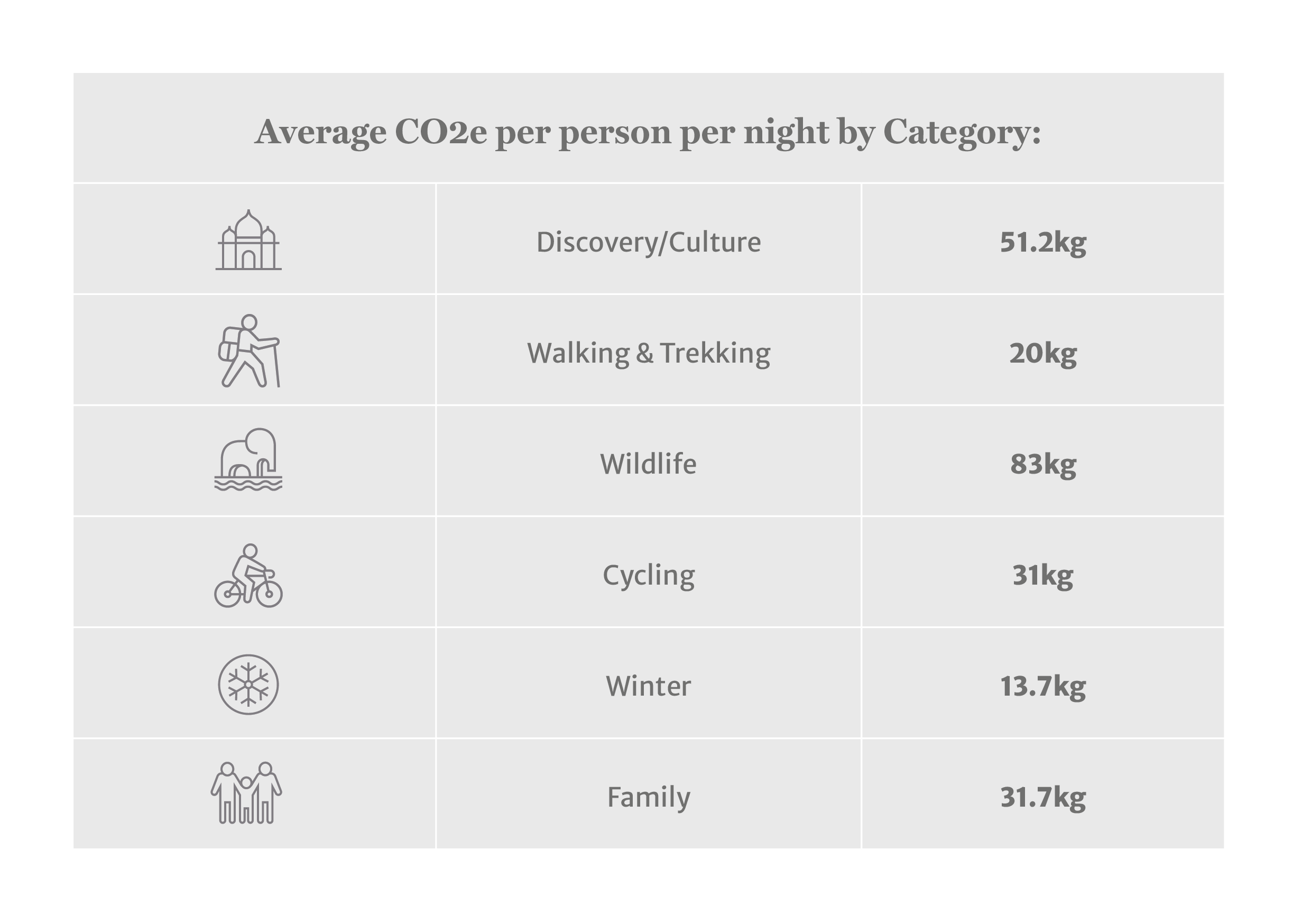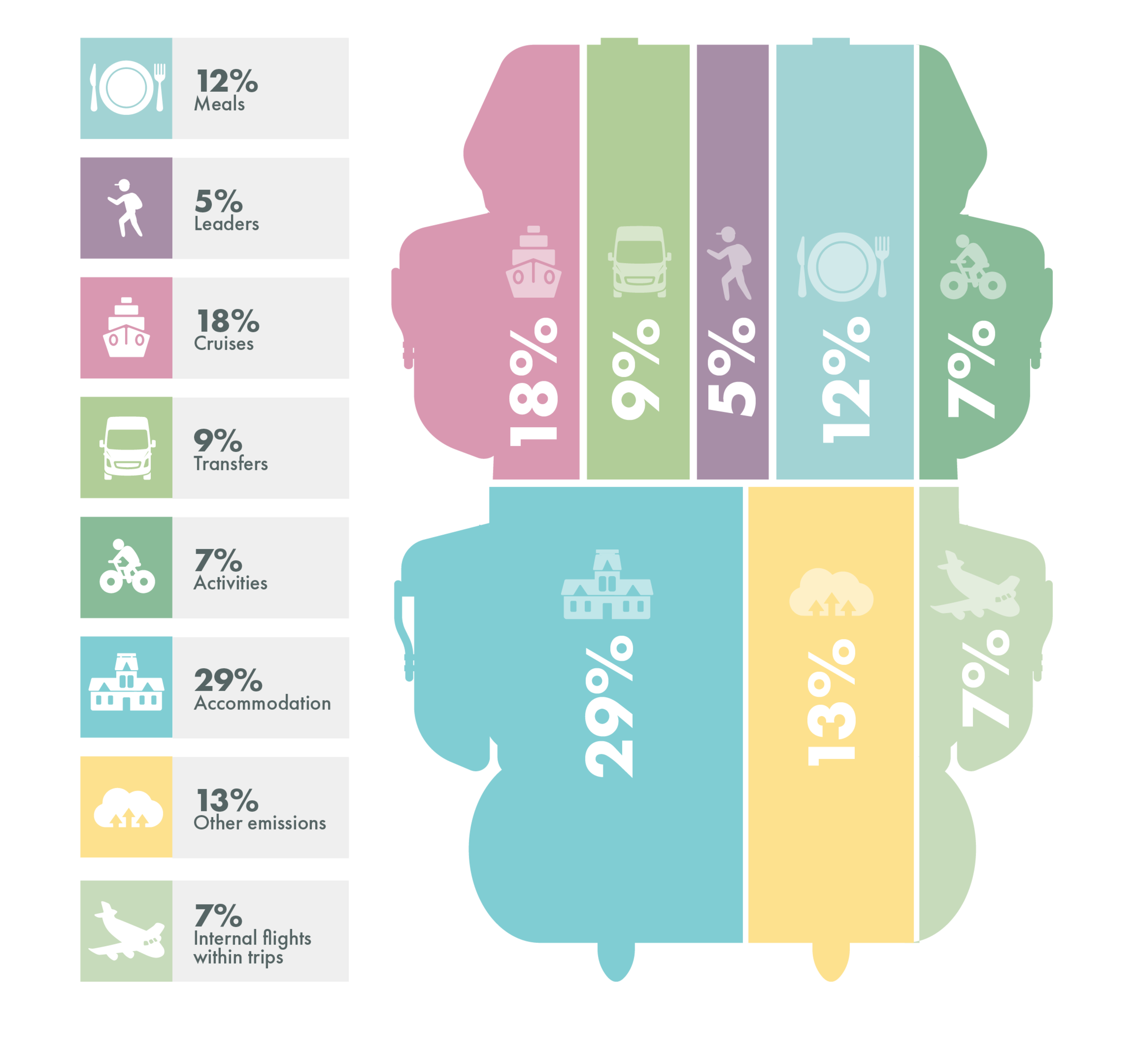We’ve worked closely with environmental management consultancy, Synergy, to establish our company’s total carbon footprint, including the footprint of our offices, staff travel and commuting, and trips. The vast majority of our footprint comes from the trips we operate.
To get a more detailed estimate of our carbon impact across each specific trip element, carbon consultancy, eCollective, helped us establish informed estimates that include all the local transport, accommodation, activities, meals and tour guides that are included in a trip. This is the information that informs our trip ‘carbon labels’.
As well as allowing us to publish our ‘carbon labels’, having this detailed carbon data helps us understand where we can make reductions in emissions.
Our style of trips, in general, has a lower carbon footprint than many other styles of holidays – we travel in small groups, stay in smaller local accommodation, enjoy locally-sourced food, and spend time cycling and hiking instead of in coaches and cars. However, any transportation – especially flights and boats – can still have a significant carbon impact, along with other factors such as energy used by accommodation, any imported food provided and so on.
We are developing a carbon reduction roadmap around science-aligned targets (those that are aligned with the Paris Agreement’s goal of limiting our global warming to 1.5 degrees above pre-industrial temperatures). This maps out how far and how we will seek to reduce our office and trip emissions by 2035 (our interim target year) and – beyond that – to 2050. Key action areas include:
- Increasing take-up of our train travel booking service, which now offers train travel as an alternative to flying most of our European trips (which now constitute around one third of all our trips globally).
- Opting for lower impact in-trip transportation, for example, swapping internal flights for trains, using public transport where feasible and looking for opportunities to switch to electric vehicles as soon as destination infrastructure allows.
- Prioritising the use of accommodation that pursues and promotes lower energy consumption.
- Increasing the prevalence of locally sourced and plant-based food across the meals included in our itineraries.
For transparency and accountability, we report on our carbon impact and reduction activities publicly in our annual sustainability report. We also work in a collaborative spirit, sharing good practices and solutions with suppliers and the wider travel and tourism industry.
Our Nature Positive approach drives us to go beyond carbon reduction alone. We recognise the need to support the restoration of our natural world, not least given the potential of land and ocean-based ecosystems to remove and store carbon:
- For each passenger that travels with Exodus, we make a commitment to rewild 100 square meters of land through our partnership with Rewilding Apennines. Read more here about how this helps provide a rich carbon sink, as well as contributing to the protection of endangered species.
- Alongside our sister companies across the Travelopia group, we partner with Blue Marine Foundation. Together, we intend to donate £1 million over 3 years, with an aim to support the conservation and restoration of 7,000 hectares of marine habitat through seven global projects. Read more about the social, natural and carbon impact of restoring these blue carbon habitats here.
- Since 2019, the Exodus Adventure Travels Foundation has supported conservation and community empowerment projects in the destinations we travel to. Many of these focus on empowering local communities to conserve and restore the natural environments which surround them. Read more here.







